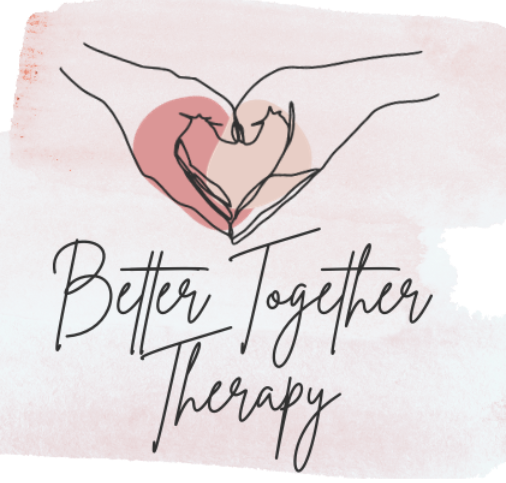Transitioning to adulthood is an incredibly dynamic and often overwhelming period in a young person’s life. This journey, filled with excitement and uncertainty, pushes young individuals to their limits as they face new responsibilities and expectations. Each step toward adulthood brings unique challenges that can affect mental, emotional, and financial well-being. Recognizing and understanding these challenges is essential to navigate this critical phase with resilience and confidence. Let’s explore some of the major hurdles young adults encounter as they step into adulthood, understand what does transition mean in adulthood, and how life transition therapy in Austin, TX can help.
What is the Major Challenge of Young Adulthood?
One of the most significant challenges of young adulthood is identity formation. During this period, young people grapple with questions of self-identity, purpose, and belonging. This process involves exploring personal values, beliefs, and goals while trying to understand where they fit within the broader society. The struggle to define oneself can be both confusing and overwhelming, as young adults seek to establish a sense of individuality and direction in life.
Why is Young Adulthood Challenging?
Young adulthood is challenging because it involves navigating numerous changes and uncertainties. This period is marked by significant shifts in responsibilities, relationships, and environments. Young adults must learn to manage their own finances, establish careers, build and maintain relationships, and make critical life decisions independently. The pressure to succeed and the fear of failure can create immense stress and anxiety, making this transition particularly difficult.
What Are Some of the Personal Challenges That Come with the Transition to Adulthood?
As young adults step into this new phase of life, they encounter a range of personal challenges that can be daunting. You wonder, how do you transition to adulthood? These obstacles test their resilience and adaptability, requiring them to develop new skills and perspectives. In addition to learning what are the seven transitions to adulthood, here are some of the most common personal challenges faced during the transition to adulthood:
Financial Strain: Managing finances independently is a common struggle for young adults. Balancing expenses, budgeting, saving, and planning for the future require skills that many are still developing. Financial instability can lead to stress and limit opportunities for personal and professional growth.
Career Uncertainty: Choosing a career path and establishing oneself in the workforce can be daunting. Young adults face pressure to make the right career choices, navigate a competitive job market, and prove their capabilities. Career uncertainty can lead to anxiety and feelings of inadequacy.
Relationship Dynamics: Navigating relationships is another significant challenge. Young adults must manage dating, friendships, family dynamics, and establishing boundaries. Developing healthy relationships requires effective communication, empathy, and conflict-resolution skills, which are still maturing during this period.
Mental Health Struggles: The stress and uncertainty of transitioning to adulthood can trigger mental health issues such as anxiety, depression, and feelings of inadequacy. Coping with these emotions while managing other responsibilities can be overwhelming.
Housing Instability: Finding stable and affordable housing is often a challenge for young adults. Moving out of the family home, affording rent, and managing living expenses can create instability and stress.
Lack of Support: A lack of support from family, friends, or society can exacerbate these challenges. Feeling isolated and unsupported can make it more difficult for young adults to navigate this transition successfully.
These personal challenges can deeply affect your journey toward independence and self-sufficiency. Recognizing and addressing these hurdles is crucial for building a stable and fulfilling adult life. Now, let’s delve into the broader developmental challenges that come with transitioning to adulthood.

What Are the Three Major Developmental Challenges of Adulthood?
As you navigate the transition to adulthood, you’ll encounter several key developmental challenges that play a crucial role in shaping your future. These challenges are fundamental to building a successful and fulfilling adult life.
- Establishing Independence: One of the core developmental challenges is establishing independence. This includes financial independence, decision-making autonomy, and living independently. Young adults must learn to rely on themselves and take responsibility for their actions and choices.
- Building Intimate Relationships: Forming and maintaining intimate relationships is another critical challenge. Young adults seek to build meaningful connections with others, which requires emotional maturity, vulnerability, and effective communication.
- Career Development and Stability: Developing a stable and fulfilling career is a significant developmental challenge. Young adults must navigate the job market, gain experience, and build a professional identity that aligns with their skills and interests.
Addressing these developmental challenges is essential for a smooth transition into adulthood. By focusing on establishing independence, building strong relationships, and developing a stable career, you can lay the foundation for a successful future. Now, let’s explore some strategies for overcoming the various challenges of young adulthood.
Overcoming the Challenges of Young Adulthood
Navigating the transition to adulthood is no small feat, but there are effective strategies and resources that can help you manage this period successfully:
- Seek Guidance and Support: Don’t hesitate to seek advice from mentors, advisors, and loved ones. They can provide valuable insights, encouragement, and practical assistance. Additionally, life transitions counseling can offer professional guidance tailored to your unique needs.
- Focus on Self-Care: Prioritizing self-care is essential for managing stress and maintaining mental and emotional well-being. Regular exercise, hobbies, and relaxation techniques can help build resilience.
- Develop Practical Skills: Invest time in developing practical life skills such as financial literacy, time management, and effective communication. These skills are crucial for navigating adulthood with confidence.
- Set Realistic Goals: Setting achievable goals can provide direction and motivation. Break down larger goals into smaller, manageable steps to avoid feeling overwhelmed.
- Embrace Flexibility: Be open to change and adaptable. The path to adulthood is rarely linear, and being flexible can help you navigate unexpected challenges and opportunities.
- Seek Professional Help: If you feel overwhelmed, consider seeking professional help like therapy or counseling. Life transitions counseling can offer the support and strategies you need to overcome the challenges you face during this pivotal time.
By implementing these strategies and utilizing available resources, you can effectively navigate the challenges of young adulthood. Embracing guidance, self-care, practical skills, realistic goals, flexibility, and professional support at Better Together Therapy will help you transition into a confident and capable adult.
Transitioning to adulthood is a multifaceted journey filled with challenges that test the resilience and adaptability of young individuals. From identity formation and financial strain to career uncertainty and relationship dynamics, the obstacles faced during this period can be daunting. However, by recognizing these challenges and employing effective coping strategies, young adults can navigate this transition with resilience, determination, and a sense of purpose. With the right support from a life transition therapist and a proactive approach, the journey to adulthood can be a rewarding and fulfilling experience.
Navigate Young Adulthood with Life Transitions Counseling in Austin, TX
Facing the challenges of young adulthood can be overwhelming, but you don’t have to do it alone. Embrace your journey of personal growth and navigate your life transitions with the support you deserve. At Better Together Therapy, I offer specialized life transitions counseling to help you turn challenges into opportunities, fostering resilience and strength. Take the first step towards a healthier, more fulfilling future by following these three simple steps:
- Schedule a free 15-minute consultation to see if Life Transitions Counseling is right for you.
- Begin meeting with skilled Life Transition Therapist Samantha Serbin in Austin, TX.
- Overcome your challenges and thrive as you grow from your transitions.
Other Services Offered at Better Together Therapy in Austin, TX
At Better Together Therapy, I’m dedicated to supporting you through every stage of your personal journey. In addition to life transition therapy, we offer a range of services to help you achieve mental and emotional well-being. This includes Child and Adolescent Therapy, Anxiety Therapy, Depression Counseling, and Therapy for Family Dynamics.


